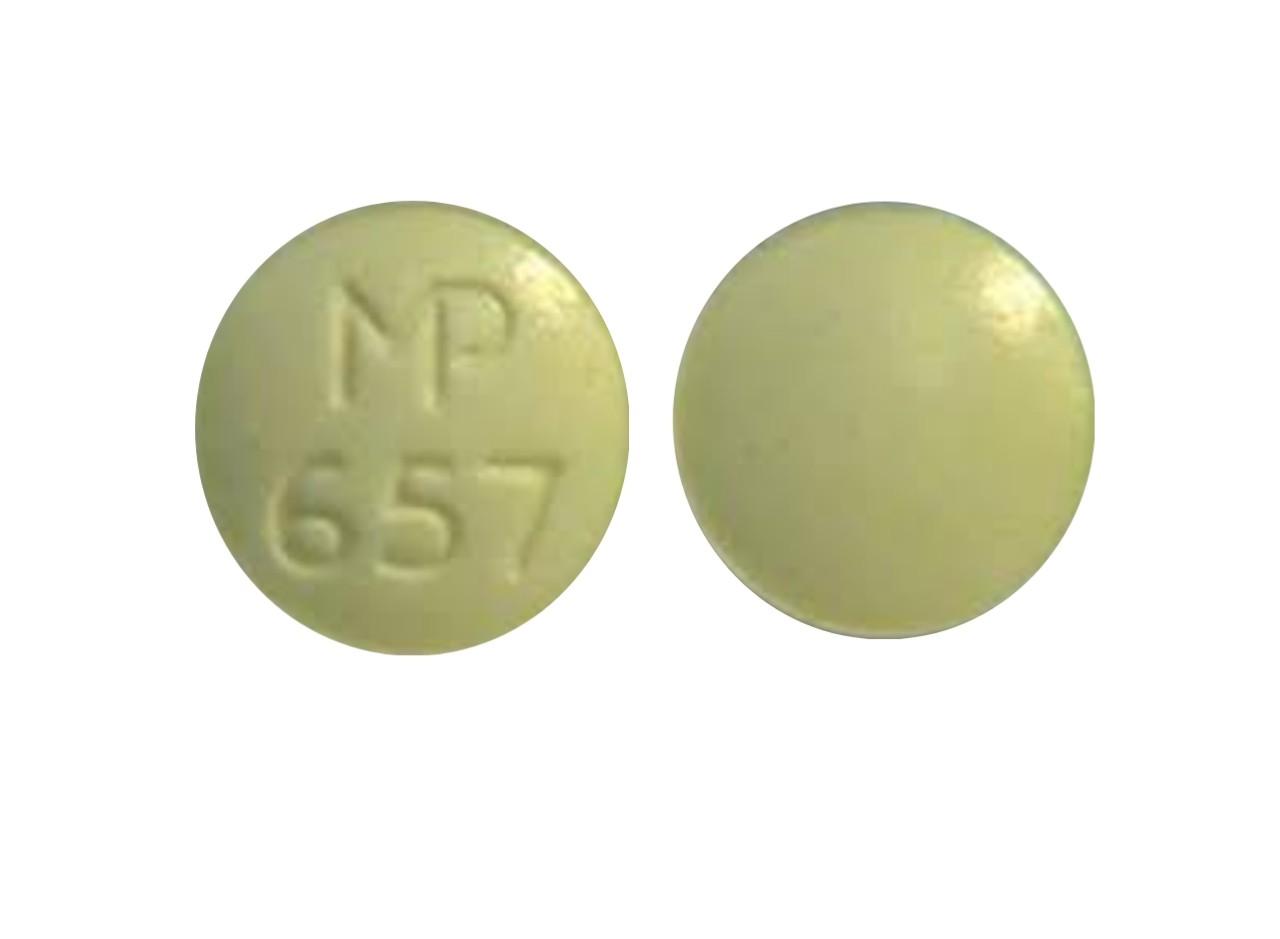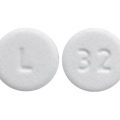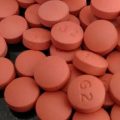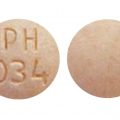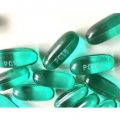The yellow, round pill with the imprint MP 657 has been identified as Clonidine Hydrochloride 0.1 mg. It is supplied by Sun Pharmaceutical Industries Inc.. Clonidine pills like MP 657 pills are used alone or in combination with other medications to treat high blood pressure. Clonidine extended-release are used alone or in combination with other medications as part of a treatment program to control symptoms of attention deficit hyperactivity disorder (ADHD; more difficulty focusing, controlling actions, and remaining still or quiet than other people who are the same age) in children.
Clonidine is in a class of medications called centrally acting alpha-agonist hypotensive agents. Clonidine treats high blood pressure by decreasing your heart rate and relaxing the blood vessels so that blood can flow more easily through the body. Clonidine extended-release tablets may treat ADHD by affecting the part of the brain that controls attention and impulsivity.
High blood pressure is a common condition and when not treated, can cause damage to the brain, heart, blood vessels, kidneys and other parts of the body. Damage to these organs may cause heart disease, a heart attack, heart failure, stroke, kidney failure, loss of vision, and other problems. In addition to taking medication, making lifestyle changes will also help to control your blood pressure. These changes include eating a diet that is low in fat and salt, maintaining a healthy weight, exercising at least 30 minutes most days, not smoking, and using alcohol in moderation.
How to use MP 657 pills
Take MP 657 pill by mouth with or without food as directed by your doctor, usually twice daily (in the morning and at bedtime). If the doses are not equal, take the larger dose at bedtime to decrease the risk of side effects.
The dosage is based on your medical condition and response to treatment. Use MP 657 pill regularly to get the most benefit from it. To help you remember, take it at the same times each day. Keep taking this medication even if you feel well. Most people with high blood pressure do not feel sick.
Do not stop taking this medication without consulting your doctor. You may experience symptoms such as nervousness, agitation, shaking, and headache. A rapid rise in blood pressure may also occur if the drug is suddenly stopped. The risk is greater if you have used this drug for a long time or in high doses, or if you are also taking a beta blocker (such as atenolol). There have also been rare reports of severe, possibly fatal reactions (such as stroke) from stopping this drug too quickly. It is important that you do not run out of clonidine or miss any doses. Tell your doctor or pharmacist right away if you are unable to take the medication (for example, due to vomiting). To prevent any reactions while you are stopping treatment with this drug, your doctor may reduce your dose gradually. Consult your doctor or pharmacist for more details. Report any new or worsening symptoms right away.
When used for a long time, MP 657 pill may not work as well and may require different dosing or an additional medication. Talk with your doctor if this medication stops working well (such as your blood pressure readings remain high or increase).
What are the side effects of MP 657 pill?
Get emergency medical help if you have signs of an allergic reaction to clonidine: hives; difficult breathing; swelling of your face, lips, tongue, or throat.
Call your doctor at once if you have:
- severe chest pain, shortness of breath, irregular heartbeats;
- a very slow heart rate; or
- a light-headed feeling, like you might pass out.
Common clonidine side effects may include:
- drowsiness, dizziness;
- feeling tired or irritable;
- dry mouth;
- constipation, loss of appetite; or
- sleep problems (insomnia), nightmares.
This is not a complete list of side effects and others may occur. Call your doctor for medical advice about side effects. You may report side effects to FDA at 1-800-FDA-1088.
Drug Interactions
Although certain medicines should not be used together at all, in other cases two different medicines may be used together even if an interaction might occur. In these cases, your doctor may want to change the dose, or other precautions may be necessary. When you are taking MP 657 pills, it is especially important that your healthcare professional know if you are taking any of the medicines listed below. The following interactions have been selected on the basis of their potential significance and are not necessarily all-inclusive.
Using MP 657 pills with any of the following medicines is usually not recommended, but may be required in some cases. If both medicines are prescribed together, your doctor may change the dose or how often you use one or both of the medicines.
- Acebutolol
- Amitriptyline
- Amoxapine
- Atenolol
- Betaxolol
- Bevantolol
- Bisoprolol
- Carteolol
- Celiprolol
- Ceritinib
- Clomipramine
- Crizotinib
- Desipramine
- Dilevalol
- Diltiazem
- Dothiepin
- Doxepin
- Esmolol
- Imipramine
- Iobenguane I 131
- Levobunolol
- Lofepramine
- Macimorelin
- Metipranolol
- Metoprolol
- Mirtazapine
- Nadolol
- Nebivolol
- Nortriptyline
- Oxprenolol
- Penbutolol
- Pindolol
- Propranolol
- Protriptyline
- Sotalol
- Tertatolol
- Timolol
- Trimipramine
- Verapamil
Using this medicine with any of the following medicines may cause an increased risk of certain side effects, but using both drugs may be the best treatment for you. If both medicines are prescribed together, your doctor may change the dose or how often you use one or both of the medicines.
- Cyclosporine
- Fluphenazine
- Mepivacaine
- Naloxone
- Yohimbine.
Other Interactions
Certain medicines should not be used at or around the time of eating food or eating certain types of food since interactions may occur. Using alcohol or tobacco with certain medicines may also cause interactions to occur. Discuss with your healthcare professional the use of your medicine with food, alcohol, or tobacco.
Other Medical Problems
The presence of other medical problems may affect the use of this medicine. Make sure you tell your doctor if you have any other medical problems, especially:
- Bradycardia (slow heartbeat) or
- Coronary insufficiency, severe or
- Dehydration or
- Heart attack, recent or
- Heart block or
- Heart or blood vessel disease or
- Heart rhythm problems or
- Hypotension (low blood pressure), history of or
- Kidney disease, severe or
- Stomach or intestinal problems or
- Stroke, history of or
- Syncope (fainting), history of—Use with caution. May cause side effects to become worse.
- Kidney disease—You may require a lower dose.


